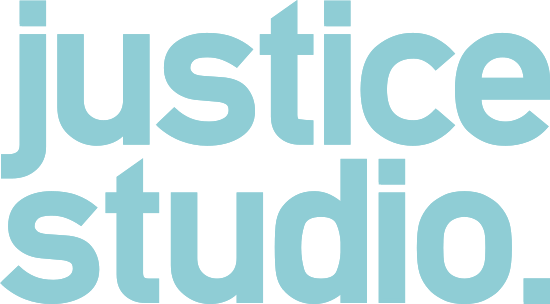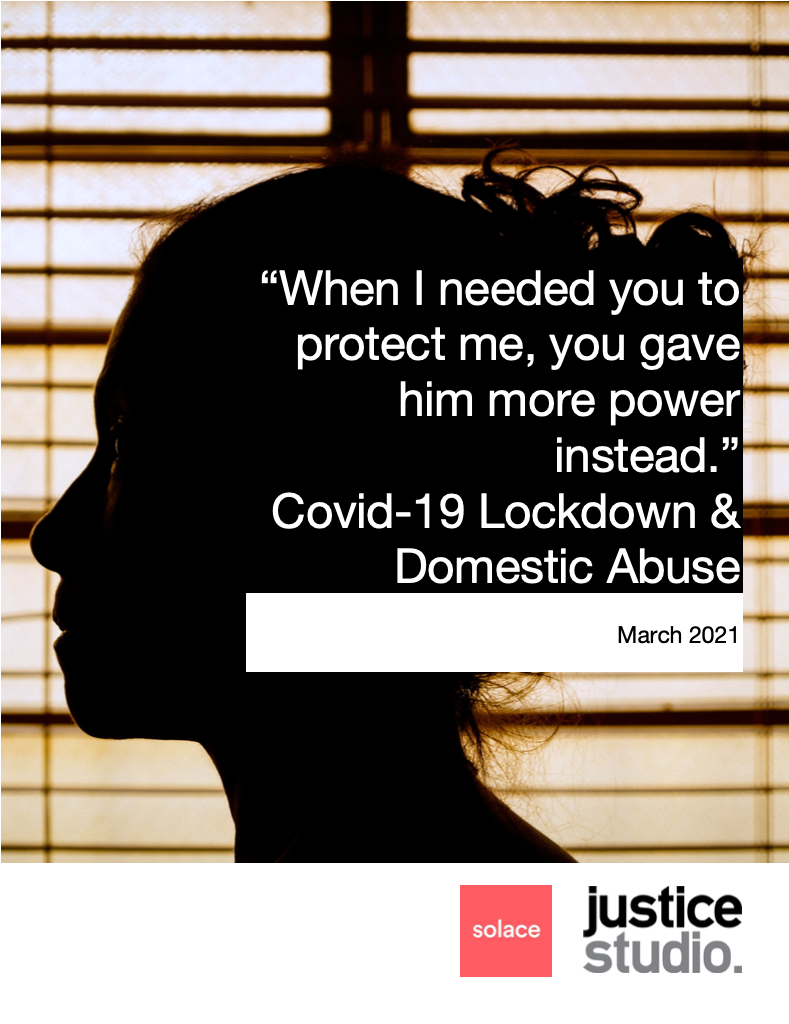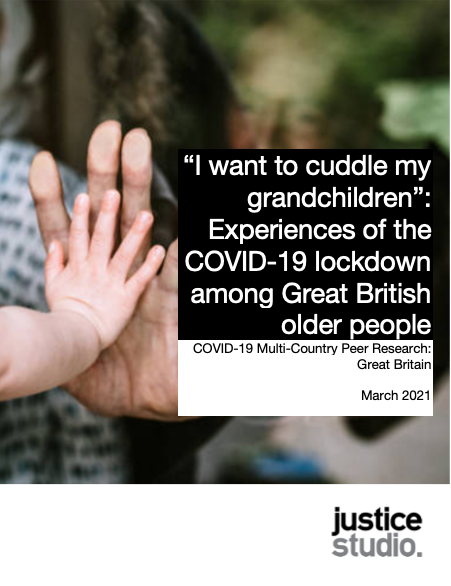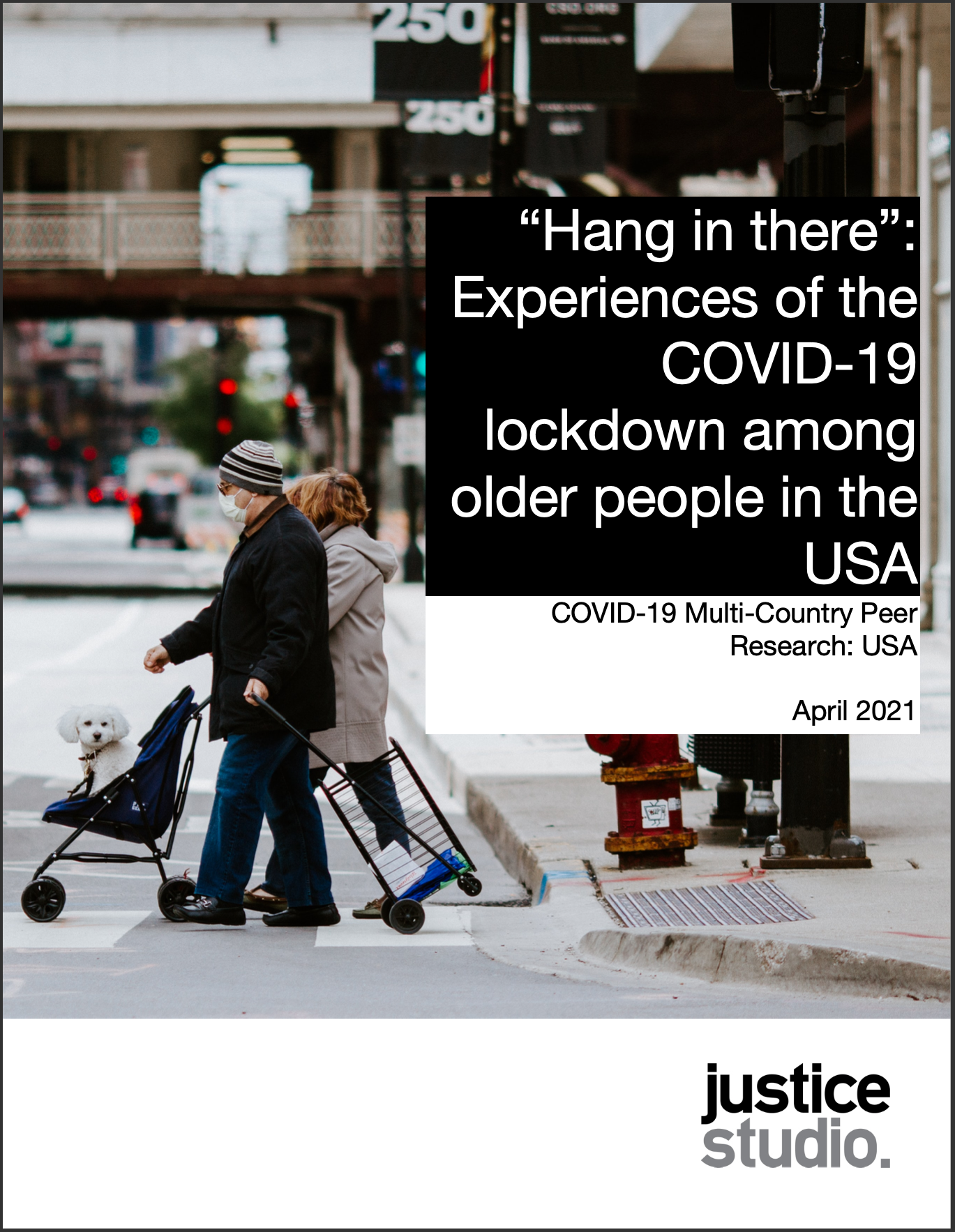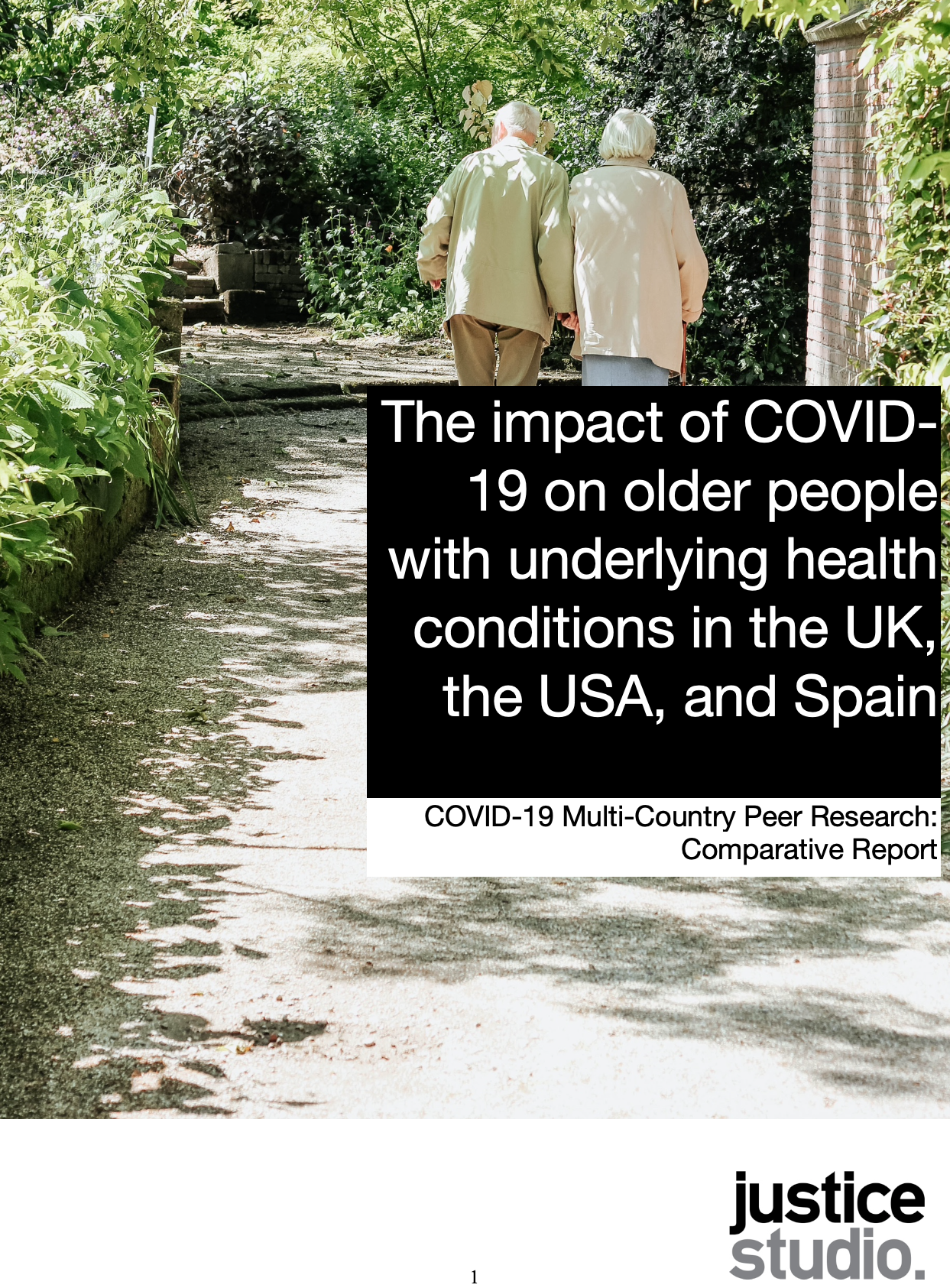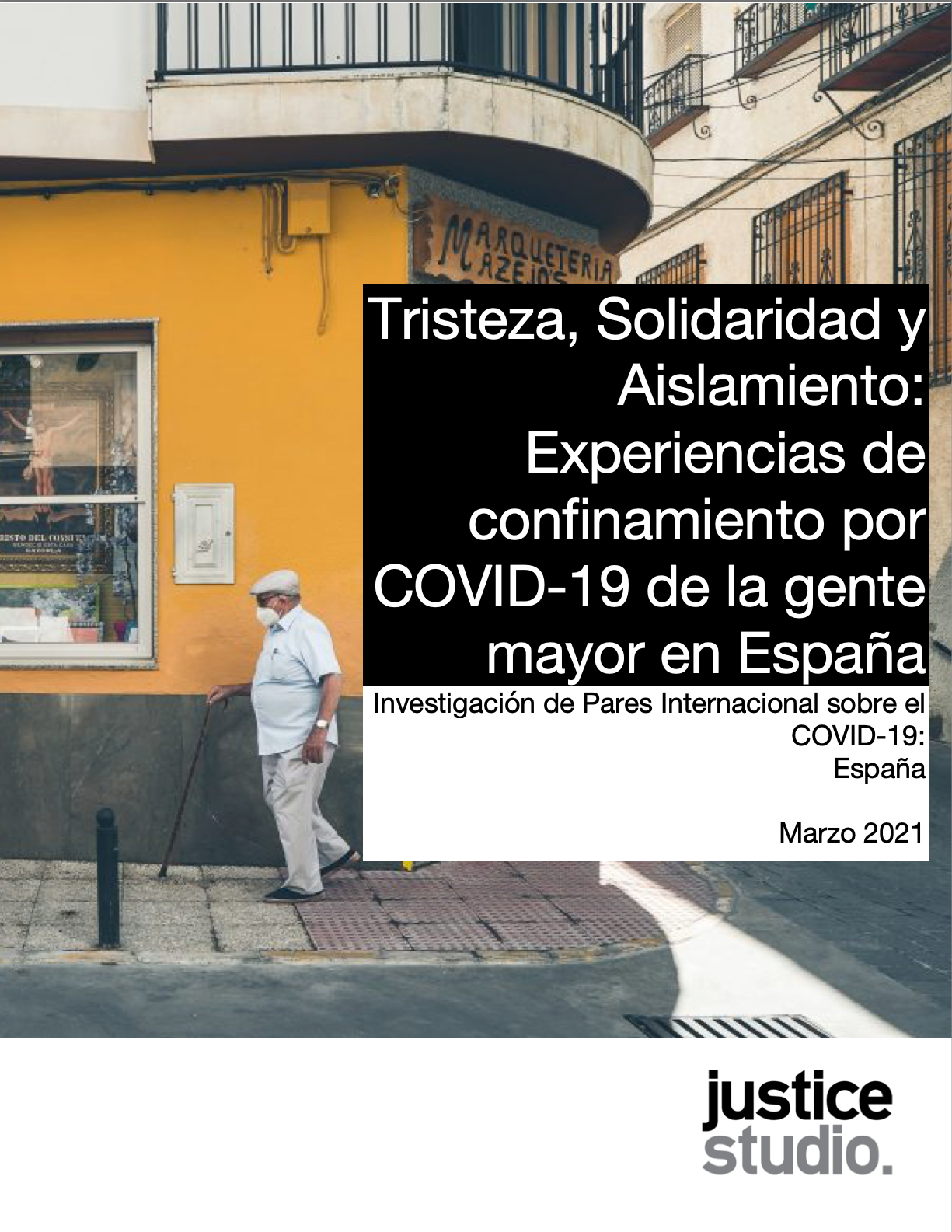Whilst much of our work and writing is internal and only our clients see it, some of it is in the public domain and can be found here:
This research comprised of a comprehensive literature review on intergenerational movement building and the implications this has on ensuring diverse intergenerational representation, i.e. among lines of race, socio-economic class, religion, ethnicity, within LGBT and women’s rights movements. The result is a narrative research brief, and a civil society focused tool-kit outlining best practice and practical case studies for replication.
This white paper argues that even in a period of economic crisis it is still possible to innovate and improve youth justice systems through prevention, diversion, the use of restorative justice and community sanctions. It both identifies the problems and issues that the public administrations, civil society and the private sectors have, and presents solutions. This is a useful resource for governments and agencies wanting to improve the efficiency of their youth justice systems.
This report aims to improve the professional knowledge and skills of all stakeholders in contact with young offenders with mental health problems. It contains an advocacy toolkit which encourages countries to develop an advocacy program to improve the provision for young offenders with mental health problems, illnesses, and disorders.
The opportunities that blockchain technology provides are being explored in many sectors, particularly the finance setting. However, little investigation has been made into the opportunities it presents for child protection. Justice Studio sought to fill this gap by investigating the opportunities and dangers of blockchain and child protection, bringing together blockchain expertise and child protection experts from high profile international and UK based organisations. With this group we investigated the capabilities of blockchain technology and cases of child protection that presented a concern or opportunity in relation to it. This report sets out the information presented and the ideas that emerged.
This briefing paper outlines the system of justice for children in Afghanistan. This short report gives an overview of the context within which children in Afghanistan live and the legal structures that exist to protect them. It then outlines the child justice process and what the situation is for children in conflict with the law from arrest, to trial, sentencing, detention and resettlement. Finally it contains suggestions for further reading for those who would like to know more.
This report, for the Secure Accommodation Network (SAN), presents the work of the seventeen Secure Children’s Homes (SCHs) in England and Wales. SCHs look after young people, both male and female, and aged from ten to eighteen who have complex needs. They have a long history, however in recent years, competition in the welfare and justice sector has led them to suffer closures and cut-backs from their commissioners. As such, this piece of research was commissioned to better evidence the work the SCHs do and the outcomes they achieve for young people. The study was based on data the SCHs had collected and additional qualitative research with the children in the homes.
The Wessex Dance Academy provides contemporary dance programmes to young people aged 15-25 in Hampshire who are: NEET; in care or care leavers; offending, or at risk of offending; or excluded from school or school refusers. The Academy commissioned Justice Studio to undertake a piece of research to establish what outcomes they achieve for these young people. The research found that the effect that the Academy has on the young people who complete the programme of dance is extremely positive. The young people were more likely to return to education and desist from reoffending. The Academy helped the young people in twelve outcome areas most strikingly in their positive mental and physical outlook; physical health, hygiene and self-care; and self-esteem.
This report, for the blood cancer charity Anthony Nolan, examines the experiences of bone marrow cancer patients in their return to work. Justice Studio conducted the research between September and December 2014. We undertook a survey of 121 post-transplant patients, held focus groups and developed case studies of the experiences of patients, their relatives and their employers. The research showed that returning to work is a difficult process, but one that improves patients’ well-being and quality of life. The report recommends offering more support to patients and employers to ensure that return to work as easy and comfortable as possible.
This report was compiled from research carried out in August 2010. Following an introductory overview of juvenile justice in Uganda, the report deals with the following subjects: Profile of children in conflict with the law; Safeguarding children; Juvenile justice system; Conditions of detention; Healthcare; Education and training; and Community reintegration. elements which require immediate attention. The report makes 36 recommendations, and ends with a conclusion which notes areas of good practice as well as elements which require immediate attention.
This report gives a voice to girls in conflict with the law and those involved in sexual exploitation in Sierra Leone. Through interviews with 24 girls between the ages of 13 and 18 it highlights that these girls are in need of care and protection rather than criminalisation. The report makes a number of recommendations including demanding more legal protection for sexually exploited children; building the capacity of the Ministry of Social Welfare; promoting formal diversion for children away from the criminal justice system; bringing conditions of detention in line with international standards; and giving girls better access to education.
Cuando la pandemia de COVID-19 azotó el mundo, se recomendó a las personas mayores que se quedaran en casa para asegurar su protección. Esto se consideró particularmente crítico para las personas mayores con problemas de salud subyacentes que fueron identificadas como uno de los grupos de alto riesgo. Para evaluar la comprensión de las personas mayores sobre estas restricciones, así como el impacto que tuvieron en sus vidas, Justice Studio llevó a cabo una investigación independiente con un grupo de más de 70 participantes en España.
REPORTS
Whilst much of our work and writing is internal and only our clients see it, some of is in the public domain and can be found here:
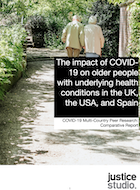
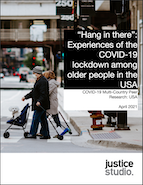


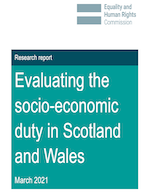
This research focuses on the socio-economic duty which is part of the Equality Act 2010 and aims to reduce inequality for people who experience socio-economic disadvantage. The findings highlight how the duty can be implemented effectively, the barriers that get in the way, how the duty affects the behaviour of public bodies and the steps needed to ensure future success.
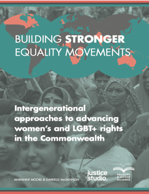
This research comprised of a comprehensive literature review on intergenerational movement building and the implications this has on ensuring diverse intergenerational representation, i.e. among lines of race, socio-economic class, religion, ethnicity, within LGBT and women’s rights movements. The result is a narrative research brief, and a civil society focused tool-kit outlining best practice and practical case studies for replication.

This white paper argues that even in a period of economic crisis it is still possible to innovate and improve youth justice systems through prevention, diversion, the use of restorative justice and community sanctions. It both identifies the problems and issues that the public administrations, civil society and the private sectors have, and presents solutions. This is a useful resource for governments and agencies wanting to improve the efficiency of their youth justice systems.

This report aims to improve the professional knowledge and skills of all stakeholders in contact with young offenders with mental health problems. It contains an advocacy toolkit which encourages countries to develop an advocacy program to improve the provision for young offenders with mental health problems, illnesses, and disorders.

The opportunities that blockchain technology provides are being explored in many sectors, particularly the finance setting. However, little investigation has been made into the opportunities it presents for child protection. Justice Studio sought to fill this gap by investigating the opportunities and dangers of blockchain and child protection, bringing together blockchain expertise and child protection experts from high profile international and UK based organisations. With this group we investigated the capabilities of blockchain technology and cases of child protection that presented a concern or opportunity in relation to it. This report sets out the information presented and the ideas that emerged.

This briefing paper outlines the system of justice for children in Afghanistan. This short report gives an overview of the context within which children in Afghanistan live and the legal structures that exist to protect them. It then outlines the child justice process and what the situation is for children in conflict with the law from arrest, to trial, sentencing, detention and resettlement. Finally it contains suggestions for further reading for those who would like to know more.

This report, for the Secure Accommodation Network (SAN), presents the work of the seventeen Secure Children’s Homes (SCHs) in England and Wales. SCHs look after young people, both male and female, and aged from ten to eighteen who have complex needs. They have a long history, however in recent years, competition in the welfare and justice sector has led them to suffer closures and cut-backs from their commissioners. As such, this piece of research was commissioned to better evidence the work the SCHs do and the outcomes they achieve for young people. The study was based on data the SCHs had collected and additional qualitative research with the children in the homes.



The Wessex Dance Academy provides contemporary dance programmes to young people aged 15-25 in Hampshire who are: NEET; in care or care leavers; offending, or at risk of offending; or excluded from school or school refusers. The Academy commissioned Justice Studio to undertake a piece of research to establish what outcomes they achieve for these young people. The research found that the effect that the Academy has on the young people who complete the programme of dance is extremely positive. The young people were more likely to return to education and desist from reoffending. The Academy helped the young people in twelve outcome areas most strikingly in their positive mental and physical outlook; physical health, hygiene and self-care; and self-esteem.


This report, for the blood cancer charity Anthony Nolan, examines the experiences of bone marrow cancer patients in their return to work. Justice Studio conducted the research between September and December 2014. We undertook a survey of 121 post-transplant patients, held focus groups and developed case studies of the experiences of patients, their relatives and their employers. The research showed that returning to work is a difficult process, but one that improves patients’ well-being and quality of life. The report recommends offering more support to patients and employers to ensure that return to work as easy and comfortable as possible.


This report was compiled from research carried out in August 2010. Following an introductory overview of juvenile justice in Uganda, the report deals with the following subjects: Profile of children in conflict with the law; Safeguarding children; Juvenile justice system; Conditions of detention; Healthcare; Education and training; and Community reintegration. elements which require immediate attention. The report makes 36 recommendations, and ends with a conclusion which notes areas of good practice as well as elements which require immediate attention.


This report gives a voice to girls in conflict with the law and those involved in sexual exploitation in Sierra Leone. Through interviews with 24 girls between the ages of 13 and 18 it highlights that these girls are in need of care and protection rather than criminalisation. The report makes a number of recommendations including demanding more legal protection for sexually exploited children; building the capacity of the Ministry of Social Welfare; promoting formal diversion for children away from the criminal justice system; bringing conditions of detention in line with international standards; and giving girls better access to education.
